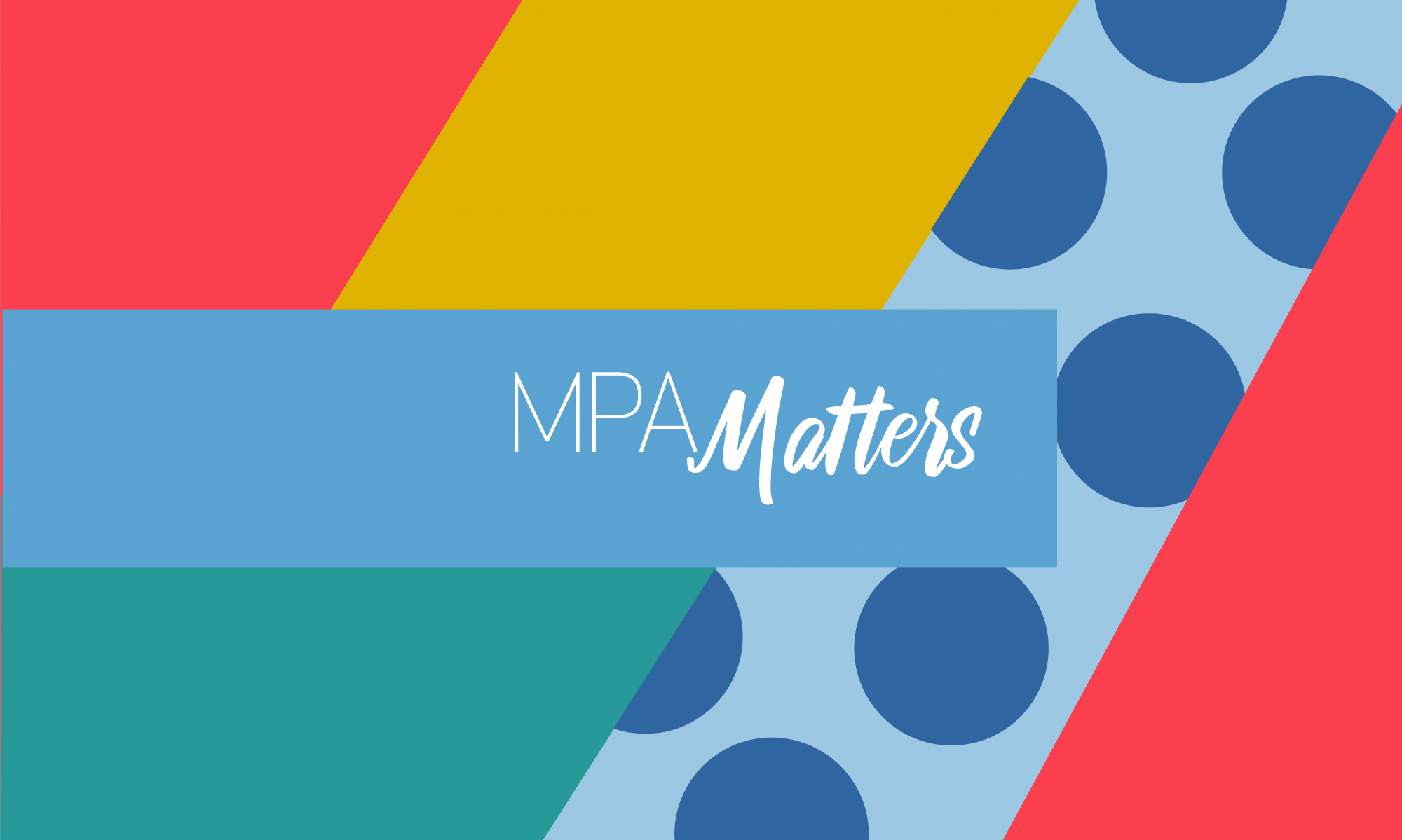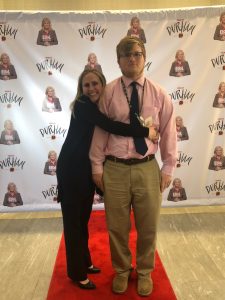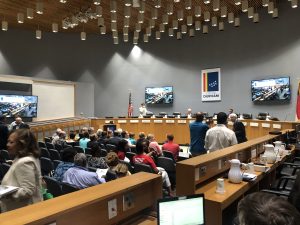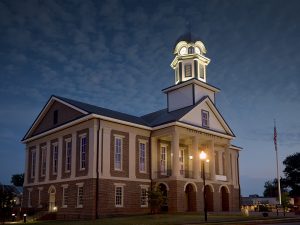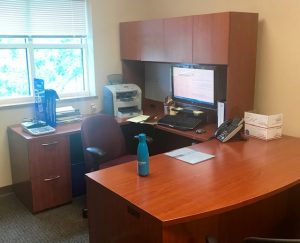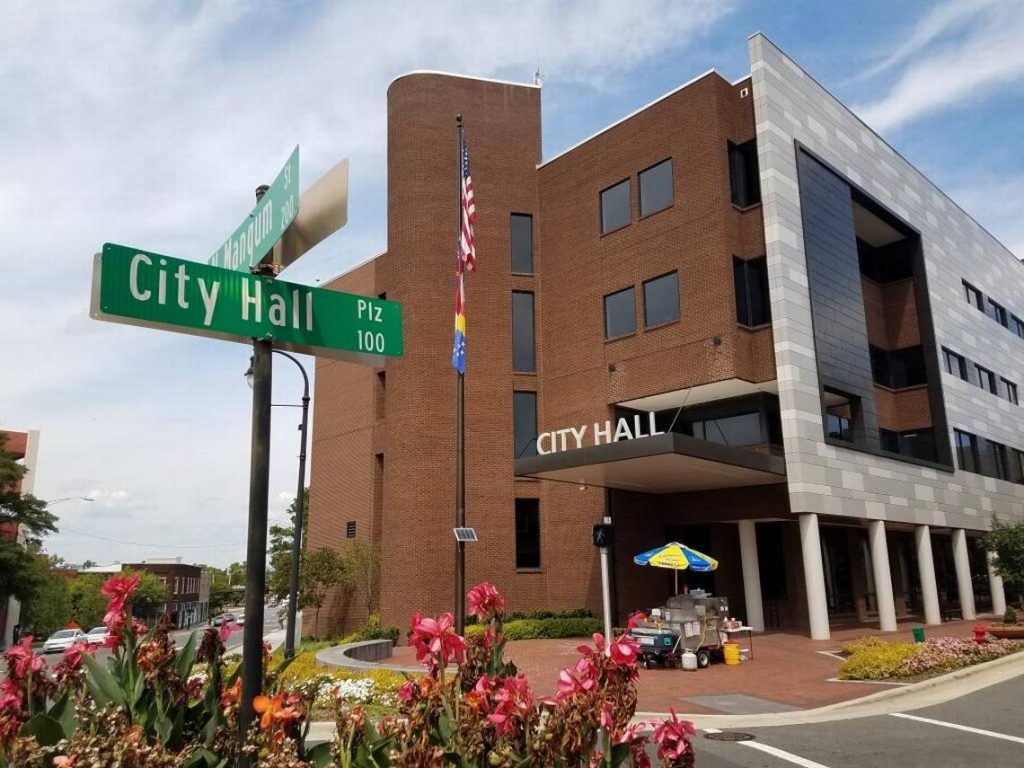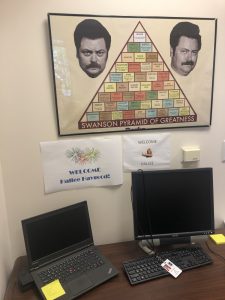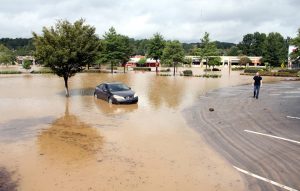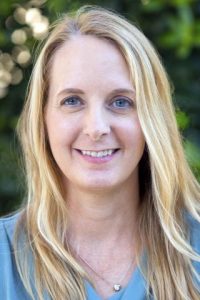Ok, so maybe this blog title had a little bit of click bait, but I definitely consider these folks celebrities…public servant celebrities!

Merriam-Webster defines public servant as “a government official or employee.” Personally, I think this definition doesn’t give public servants enough credit! So, to do us some justice, I would like to highlight some key people that I’ve met over the last week that add to that bare-bones definition of public servant.
Celebrity Sighting #1:
On Monday, I attended my first ever Board of Commissioners meeting. Honestly, I was in awe because I got to see topics from my MPA coursework in action, like public hearings and budget proposal presentations. I also got to witness a new commissioner being sworn in!
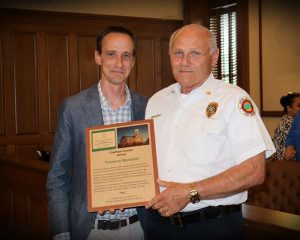
However, most importantly, I got to see a truly dedicated public servant be honored for his service to the community. Fire Marshall Thomas Bender received special recognition for his 26+ years of service to Chatham County. Even during a public hearing for a zoning request, the person making the request said that he remembered Fire Marshall Bender making presentations at his elementary and middle school. Even though this community member’s request to the Commissioners was completely unrelated to Fire Marshall Bender, he still took the time to acknowledge how Fire Marshall Bender had an impact on the community – a true public servant and community celebrity.
Celebrity Sighting #2:
So…this next celebrity is fairly new to the scene (compared to Fire Marshall Bender) and is one of our very own – Stephanie Watkins-Cruz! She has been working with Chatham County for about a year now as their policy analyst. Last week, I attended a really cool “town hall-type community conversation” sponsored by Our Chatham and Chatham News + Record. It was mostly a Q&A on housing and inequity with a panel of community leaders. Stephanie, of course, was on that panel.
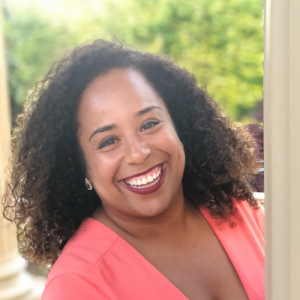
I will say, I am quite fortune because I get to talk with Stephanie quite regularly in the office. But, on this day, I got to see Stephanie in full public service mode! Stephanie presented data, shared stories, and answered questions without breaking a sweat! She was honest, poised and responsive to community members. Even when she was hit with hard questions, her responses were authentic and showed her dedication to serving the County to her best ability! I was, and continue to be, in awe at her ability to be so open, authentic, and committed. I am glad to have such a great role model right here in the Chatham County Manager’s Office with me.
Celebrity Sighting #3:
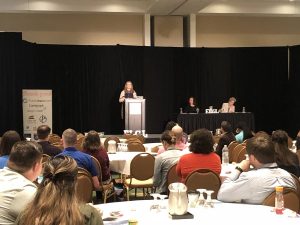
So this last celebrity was not spotted in Chatham County, but rather in Durham! Last week, I had the opportunity to attend the Engaging Local Government Leaders (ELGL) conference, #ELGL19. And with that, I got to meet Kirsten Wyatt!
#ELGL19 was amazing, to say the least! Not only were there great conference goodies and thought-provoking conversations, but there were great opportunities to network and meet people across the country doing great work! I even got to meet some people that do the type of work that I would love to do in the future. The cool thing is that the co-founders of ELGL are Kirsten and Kent Wyatt, who also happen to be graduates of the UNC-Chapel Hill MPA program! And yes, I did get to shake Kirsten’s hand! She’s as innovative, intelligent and lovely as she seems online. So, if you get the chance…attend next year’s conference in Oregon! I know I’ll be there.
Service is what led me to pursue degrees in social work and public administration. I am so grateful for all of the amazing homegrown “celebrities” that are adding to the Merriam-Webster definition of public servant through dedication, authenticity and innovation. Thank you for all that you do!
